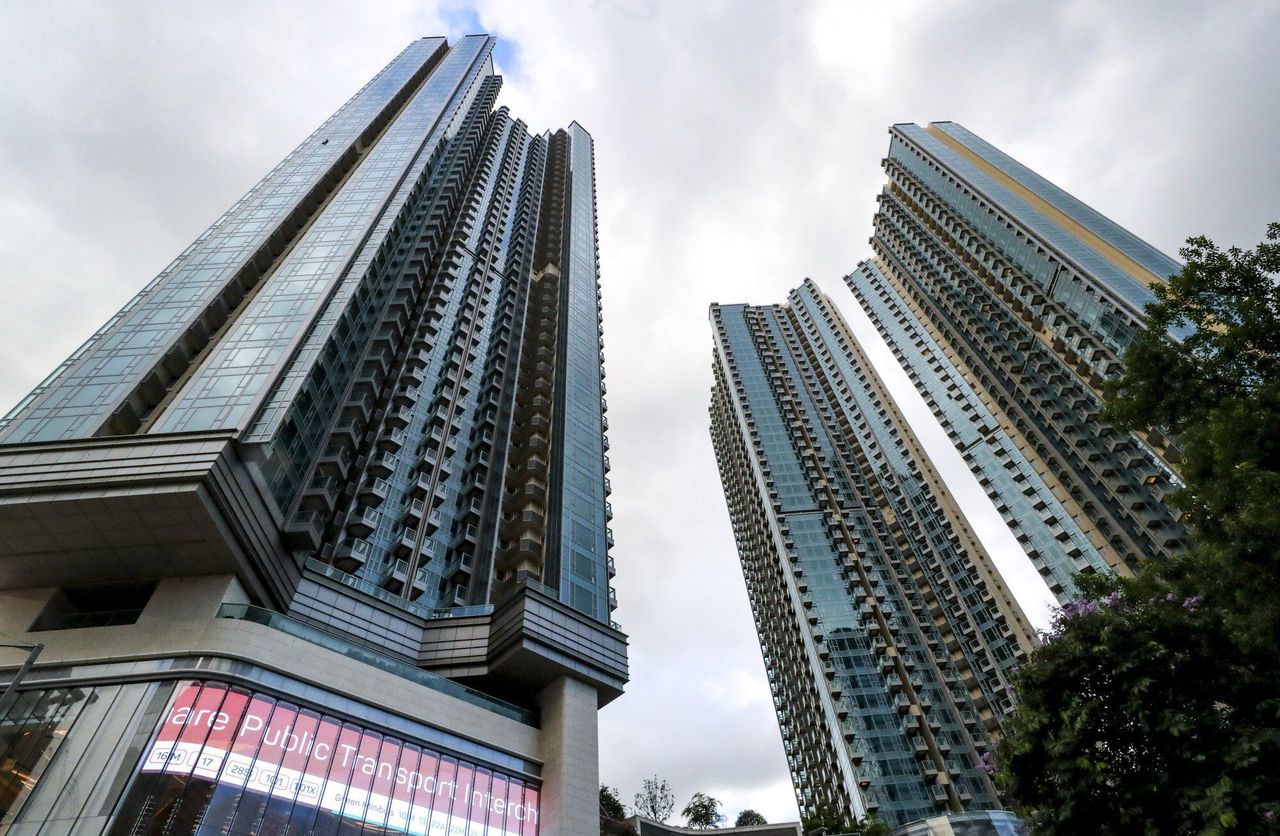Hong Kong News

A peek at the HK$11 million flat in lottery to boost vaccine rate
The HK$10.8 million (US$1.4 million) apartment offered by one of Hong Kong’s largest property developers in a lottery to spur the city’s residents to take up the Covid-19 vaccine, is a single-room flat at Sino Land’s Grand Central project in Kwun Tong on the eastern side of Kowloon.
The unit, located on the 47th floor of Tower Three, measures 449 square feet (42 square metres) and has two balconies overlooking the Kowloon Peak, also known as Fei Ngo Shan (literally: “Soaring Goose Mountain”) and the Lion Rock. It was kept by the developer and was not included in the first sales launch in 2018.
The area, formerly a prominent industrial hub on the eastern side of Kowloon in the 1950s, has gradually evolved from a manufacturing base into a district packed with cafes, restaurants, lifestyle shops and premium commercial buildings.
The apartment is arguably the big magnet in a bag of goodies worth more than HK$120 million so far - they include a diamond-studded Rolex, a Tesla and 300 taels of pure gold - being offered by several of the city’s largest real estate developers, billionaires, charities and other individuals to steepen the vaccination curve in the financial hub.
With a population of 7.5 million and a two-dose vaccination rate of 17.5 per cent as of June 10, Hong Kong is among the world’s least vaccinated regions. The inertia is egregious, considering the city is one of the few places in the world where the Covid-19 jabs are free and highly accessible. It is a truancy that local authorities are trying to correct to get the borders reopened and the local economy humming again.
“Grand Central is located next to the MTR station in Kwun Tong, part of the Kwun Tong Redevelopment Plan, the largest such plan ever mapped out by the Urban Renewal Authority (URA),” said Thomas Lam, executive director at Knight Frank. “It is really coming up as a cool neighborhood.”
The ready-to-move-in development has a total of 1,999 units spread across four high-rise towers co-developed by Sino Land, the URA and Chinese Estates Holdings. More than 1,800 units have been sold at a price ranging from HK$18,000 to HK$25,000 per square foot since 2018. The greening ratio of the project – a measure of the proportion of green space – accounts for more than 30 per cent of the total development area.
 General view of Grand Central in Kwun Tong.
General view of Grand Central in Kwun Tong.
While some Hongkongers are seemingly shunning Covid-19 vaccines for whatever reasons, one thing is certain: they will always have a zeal for property in a city infamous for its stratospheric home prices, poor affordability and a chronic shortage of public housing.
The Grand Central apartment for the lucky draw is co-sponsored by the Ng Teng Fong Charitable Foundation and Chinese Estates Holdings. The foundation will also separately donate 20 prizes with a prepaid or credit card value of HK$100,000 each, for permanent and non-permanent residents alike.
The sponsors will foot the transaction costs and stamp duty and the first year’s management fee at a rate of HK$4 per square foot per month. Alternatively, the lucky person could hold it as an investment, or could easily let it out for more than HK$200,000 of rental income annually, Lam of Knight Frank said.
Registration for the luxury flat lottery will open at 9am on June 15, and will end on or before September 1. The winners will be randomly drawn on September 8 and the result will be announced on the same day.
The incentives were widely reported by news outlets including those in the US, India, Japan, Thailand and some European countries.
Have these goodies already moved the needle?
Since the promotions started, more people have booked vaccinations. On June 10, the number of people who had booked themselves in for a jab increased to 38,089, triple the level seen in mid-May.
“Hong Kong companies have always taken ESG seriously, and mainly do it behind the scenes,” said George Leung Siu-kay, chief executive of the Hong Kong General Chamber of Commerce, whose over 4,000 member firms employ more than 1.3 million people in Hong Kong.
ESG, short for environmental, social and corporate governance (ESG), is a measure of a company’s sustainability, its impact on the environment and the wider society within which it operates.
“These cases of donations and sponsorship of lucky draws are more visible as it is in Hong Kong’s interest for more people to be vaccinated so we can reach herd immunity.”











